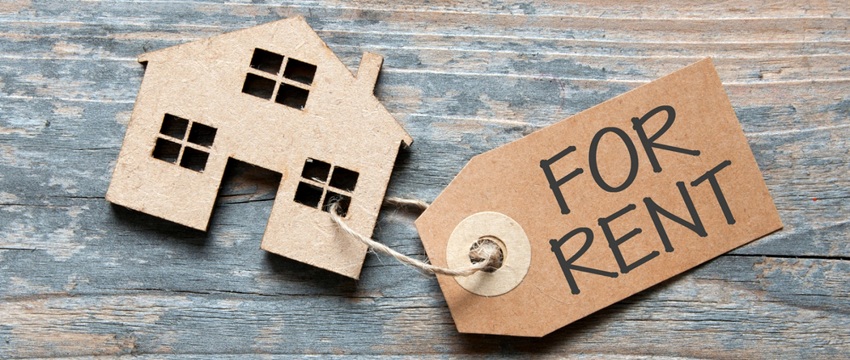
How to make it as a Landlord in 2020
If you’re the sort of person who enjoys watching shows like Homes Under the Hammer and thinks “I could do that!” then you’ve probably considered becoming a landlord at some stage.
But being a landlord is a tough business, and despite what some people may think, it’s not a licence to print money.
So, Rightmove have spoken to The Secret Landlord – who’s been letting, refurbishing and selling properties across the UK for almost two decades – for her top tips on what it really takes to succeed as a landlord.
An award winning landlord, as judged by the National Landlords Association, The Secret Landlord has provided accommodation for hundreds of tenants from all walks of life.
Scroll down to read their Q&A for some expert insight and hopefully you’ll learn plenty of top tips along the way!
RM: How important is budgeting as a landlord?
SL: It’s easy to get caught up and think little odds and ends don’t matter too much, but they do. Every penny of expense should be recorded and submitted. Accurate records need to be kept at all times. This will also make your life easier when they do make tax digital.
Too many investors worry about the big ticket items and don’t spend enough time thinking about the smaller spends. Money leaks out of businesses in weird and wonderful ways and you need to do your best to understand where it does to be sure you’re running an effective operation.
RM: How do you approach rent increases?
SL: Rent increases are controversial, especially when they involve long term good tenants. Rewarding tenants with no rent increases is one strategy, however another approach is to look at biennial incremental rent increases (market factors permitting). Small rises are an opportunity for you to remind good tenants they are being rewarded with a lower than market rate and allow you to build an ‘improvement pot’ to ensure your property remains in good condition.
It’s also important to understand the value of your business as a landlord where, unlike a homeowner, you will be a repeat customer for many trades and suppliers. This means you should seek out the best prices and service levels to provide the most you can for your tenants.
RM: How do you deal with things going wrong?
SL: No matter how much you try and future-proof and fool-proof a property it will always go wrong. Entropy is a fact of life. As an investor you must understand things will always decline, a roof will never fix itself and a problem will never go away until you solve it.
Solving problems always costs money and takes time and those things need to be factored in. Things will always take longer and cost more than what you initially expect, so it’s best practice to add another 10-20% to any estimate. If it comes in at price, you’ll be pleased with the ‘saving’.
RM: Is there much paperwork involved?
SL: Paperwork is a pain, but it’s also critical to ensuring you run a safe and reputable business. Records need to be kept of all ASTs, deposit certificates, gas and electrical work and ensure you diarise when things become due. Gas safety checks are annual, electrical checks are every five years, EPCs every ten years.
There are many free and low priced technical solutions available for making the headache of paperwork less stressful, which should be explored and used. Having adequate insurance is crucial, it’s best practice to also include legal expenses. Insurance is only as good as the policy small print, so it’s best to ensure you have a comprehensive one that fits your needs, not just the cheapest.
Be on top of when any guarantees, warranties and mortgage deals expire and shop around at least one month beforehand. Being prepared is key to getting the best deal.
RM: What’re your top pieces of advice for aspiring landlords?
SL: To make it as a landlord you need to be prepared for anything and everything to happen at a moment’s notice. It’s important to educate yourself and keep up-to-date with changing legislation. Landlord organisations are only a few pounds per month and offer excellent guidance along with helplines. There are also many resources available from property blogs to property forums and books. Building up a sinking fund is crucial and it’s advisable to save at least 15% of your rent for rainy days.
Like any business, buy to let has seasonal variances. Winter is worse for roof repairs, autumn for boiler problems and spring for windows and fencing. Adjust your budget so you can be ready for the year ahead. If you’re concerned by expensive boiler repairs, consider taking out a policy which protects the boiler in the event of an emergency.
Unfortunately, you cannot stop problems occurring, but the best course of action is to be prepared for when they do. If you’re going on holiday, or live far away from a property, it might be useful to take out an emergency policy to ensure repairs can be dealt with swiftly.
It’s not easy to always expect the unexpected, but planning ahead, keeping accurate records, having a good network of people and an emergency budget will help you sail through many storms.
If you are considering selling or letting your property in Ashtead, Leatherhead, Fetcham, Epsom, Bookham or the surrounding areas, call V&H Homes on 01372 221 678







